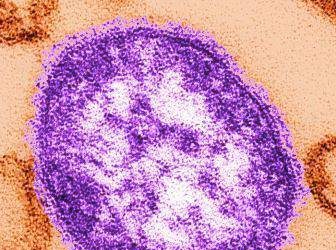FROM CIRCULATION
Cardiovascular health in adulthood is directly related to favorable psychosocial factors in youth, according to the results of a study conducted using a new metrics system developed by the American Heart Association.
“Childhood and youth are important stages of life because cardiovascular diseases are rooted in early life and social determinants of health start to accumulate in childhood,” wrote lead author Laura Pulkki-Råback, Ph.D., of Finland’s University of Helsinki, and her associates (Circulation 2015 [doi:10.1161/CIRCULATIONAHA.113.007104]), adding that “release of the AHA 2020 Impact Goals makes it critical to examine all aspects, including psychosocial factors that may help in [their] attainment,” which includes “expanded emphasis on prevention and greater understanding of the origins of cardiovascular disease.”
Dr. Pulkki-Råback and her coinvestigators enrolled 477 males and 612 females from a nationwide randomized, cohort study, “Cardiovascular Risk in Young Finns.” They were between the ages of 3 and 18 years. Subjects were measured for psychosocial factors – such as socioeconomic factors, emotional family environment, parental health behaviors, stressful events, self-regulatory behavior, and social adjustment – at baseline, and ideal cardiovascular health was measured in adulthood 27 years afterward. Participants were divided into cohorts based on age (young vs. old), and by age and sex. On average, subjects were aged 10 years at baseline and 37 years during the adult measurement phase.
According to the findings of Dr. Pulkki-Råback and associates, subjects’ average score on the ideal cardiovascular health index in adulthood was 2.6. Total favorable psychosocial factors were found to directly associate with ideal cardiovascular health in adulthood: when adjusted for age, sex, and medication use, r = 0.16 (P < .001); adding childhood cardiovascular risk factors, r = 0.15 (P < .001). Multinomial regression analyses that show when favorable psychosocial factors rose by one point, the probability of having 2, 3, 4, 5, or at least 6 ideal cardiovascular health metrics rose by 6%, 14%, 17%, 17%, and 35%, compared with having 1 or fewer ideal cardiovascular health metrics, respectively.
It was discovered that socioeconomic status was associated with healthier behavior of subjects’ parents (r = 0.10, P < .001). Emotional family environment was correlated with healthy behavior of the parents (r = 0.16, P < .001), higher likelihood of self-regulatory behavior as a child (r = 0.12, P < .001), and better social adjustment as a child (r = 0.10, P < .001).
Favorable psychosocial factors score were more strongly associated with leaner body mass index (odds ratio = 1.14, P < .001), not being a smoker (OR = 1.12, P < .001), and better glucose levels (OR = 1.11, P < .001).
“We found that psychosocial factors operated across the whole gradient of ideal cardiovascular health,” wrote the investigators. “There was no evidence for any threshold point after which the effect of psychosocial factors would become unimportant. This may suggest wider scope for prevention than has previously been considered, because all individuals may benefit from improvements in early-life conditions, not only those at the bottom of the gradient. In combination with prior work, this evidence begins to suggest that even improving a single factor would likely result in better future cardiovascular health.”
Funding for the study was provided by grants from the Academy of Finland and numerous other Finnish organizations. The authors reported no conflicts of interest.



